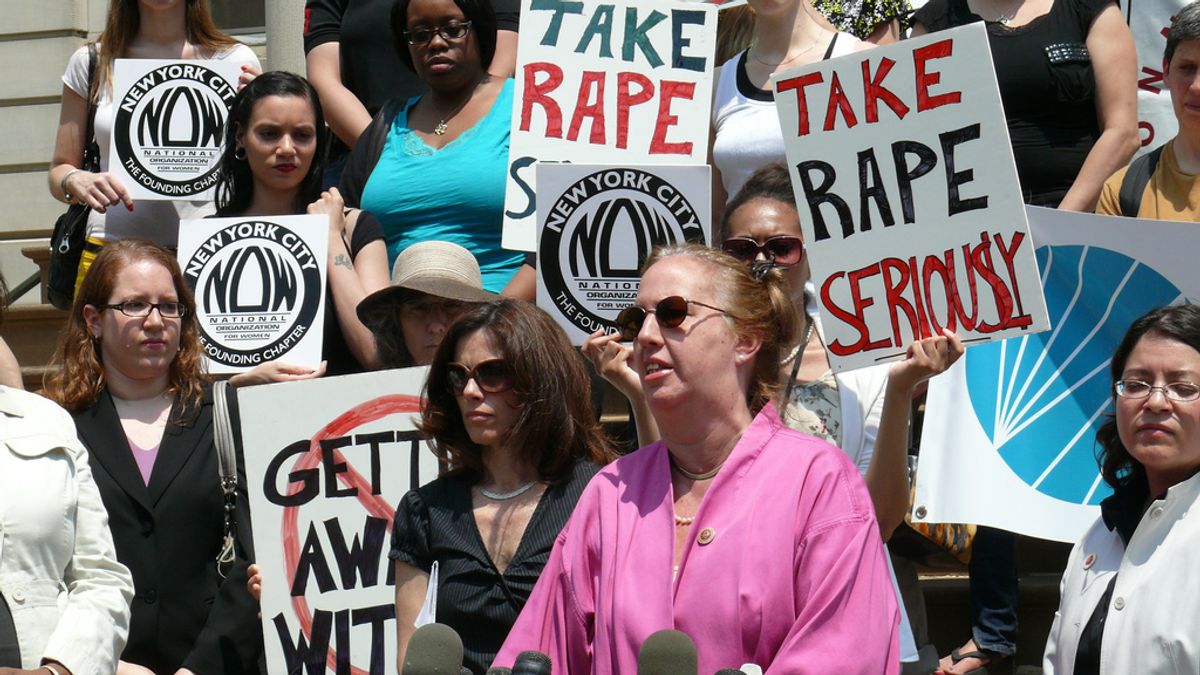On Monday, the Jezebel staff publicly addressed an ongoing "rape GIF" problem that the site's publisher, Gawker Media, has reportedly failed to address. Anonymous trolls relying on untraceable IP addresses have been posting grotesque, misogynist rape porn in the comments sections of Jezebel posts for months, triggering readers and threatening the mental health of the site's staff. The situation puts Jezebel writers and readers in unnecessary emotional peril. What's more, it also illustrates sexism and rape culture in action: The women at the women's site are being targeted, subjected to horrific misogynist images, overlooked and effectively mistreated. That is a problem.
But, according to blogger Xeni Jardin, the rape GIF situation isn't really a problem because rape is a problem, and apparently it's the only legitimate problem with which anyone should be concerned. In a tweet posted on Tuesday morning, Jardin called out the Jezebel staff for being "privileged" enough to "troll" about misogynist images, effectively ranking sexual traumas:
Most women in the world face a rape problem. Only a tiny minority of women are so privileged to be able to troll about a “rape GIF problem”
— Xeni Jardin (@xeni) August 12, 2014
A quick reminder: Ranking sexual traumas is not productive. It's something Todd Akin does, and following suit does little but buy into the problematic idea that some forms of rape are "legitimate" while others are not. It perpetuates that notion that sexual trauma doesn't count if it comes in the form of a graphic, triggering image on a screen, because an image on a screen is not a stranger at the end of a dark alley wielding a knife and forcing a woman to have sex against her will. It feeds into all the ideas we get about grey areas and "sexual touching isn't assault" and how maybe harassment and abuse are just normal parts of everyday life for women.
Ranking traumas is not an effective way to address rape crises anywhere in the world, nor is it a productive way to open a dialogue about rape culture and social misconceptions about sexual assault. Trauma is trauma -- and being a survivor of rape or sexual assault, as Jardin later described herself, does not endow one with the right to determine who has or has not suffered as well. Survivors need support, not additional criticism or marginalization (because it's not like they face either of those things as is or anything). The suggestion that any woman who speaks out about sexual trauma is "trolling" dismisses her claims as illegitimate and misconstrues certain abuses as forms of "privilege."
To reiterate something that's been said before: Harassment, abuse and rape are not privileges. Moreover, they are not mutually exclusive forms of sexual trauma. Jardin is right: Most women in the world do face a rape problem. Facing a "rape GIF problem" doesn't preclude the women who face it from being victims of rape as well. These are not separate issues -- but both are very real.

Shares